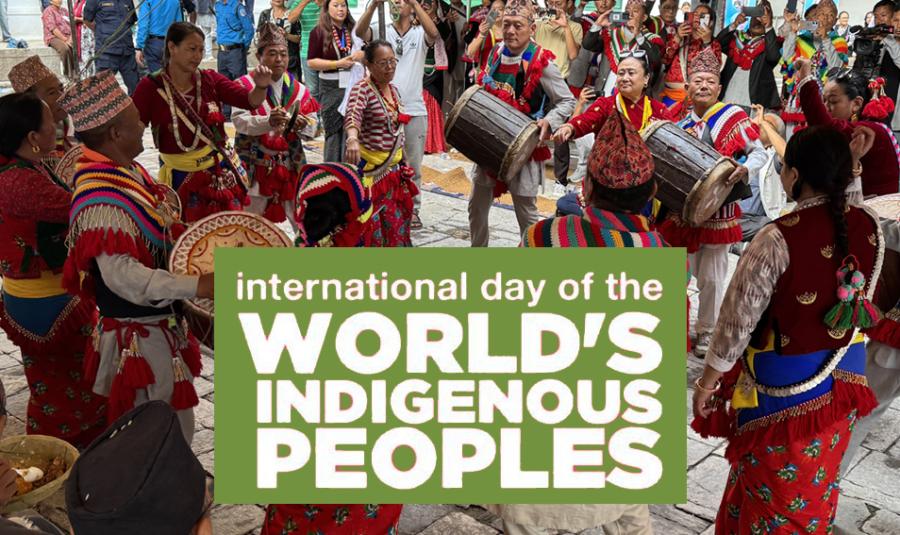A new spectre is haunting the world - the fear of ethnic conflict and of the ethnic cleansing to which it seems to lead. The end of the cold war, the reunification of Germany, the emergency of a new South Africa, even the cautions steps towards peace between Israel and its neighbors would have seemed like miracles ten years ago. Now our relief seems to be dissipated by the gloomy prospect of worldwide carnage and ethnic unrest. Is this to be new world dis-order? Did we awake from the familiar nightmare of the cold war, only to find ourselves confronting the terrors of our own basest instincts, the primordial urge to band together with those like ourselves and harass or kill those who are different? Many newspaper and commentators seem to think so, but they are wrong.
Ethnic conflict is not simply the expression of the the primordial instincts of humankind. Peoples possessing different languages, religions, customs and historical traditions have in the past lived side by side without fighting. These peaceful relations can be strained in periods of generalized fear and uncertainty or when people are faced with unwonted scarcity. Even then, ethnic conflicts can be exacerbated or defused. It is an unhappy fact that all over the world people are more skilled in fomenting ethnic conflict than they are in preventing or dealing with it.
This has been dramatically demonstrated in the former Yugoslavia. Serbs, Croats and Muslims have lived together with little conflict in the past. Germany encouraged and exacerbated ethnic conflict i the region during the second world war. Later Tito attempted to abolish ethnicity by force, but failed to establish strong alternative institutions in his Yugoslavia. The country was thus poorly prepared to deal with the economic and political uncertainties currently afflicting eastern Europe. Its leaders were exposed as inept and corrupt, and its population was beset by fears for the future. In this climate of extreme anxiety ethnic frenzy was fanned by unscrupulous politicians, old Communists who recast themselves as nationlists and reached for power by playing the enthic card. First they eliminated the moderates who argued for multiethnic solutions, then they played on people's fears, till enough to them came to believe that their only salvation lay in clinging to their "own kind" and getting rid of the others. Ignatieff summed it up well in Blood and Belonging (1993:23):
We are making excuses for ourselves when we dismiss the Balkans as a sub-rational zone of intractable fanaticism. And we are ending the search for explanations just when it should begin if we assert that local ethnic hatreds were so rooted i history that they were bound to explode into nationlists violence. On the contrary, these people had to be transformed from neighbors into enemies.
The root of the problem is the ethnic definition of the state. Once a state is defined as being the preserve of only one ethnic group, all other citizens of it are made to feel like outsiders, are likely to suffer discrimination and may have their very citizenship challenged or revoked.
There have been two traditional ways to combat the ethnic state. One is the establishment of an authoritarian state that tires to outlaw ethnic expression; the other is the establishment of a liberal democratic state that tries to make ethnicity irrelevant, while arguing the members of ethnic groups to join the mainstream. Neither solution has worked very well. Authoritarian states have proved unable to suppress ethnic expression indefinitely. They have generally been more successful at eliminating the civic institutions that might counteract ethnic virulence, so that ethnic conflicts have erupted with peculiar violence after the collapse of dictatorships.
The liberal state has been the hope and the preferred solution in the west. it was to be state that would deal equitably with us citizens as individuals, and the citizens for their part would enjoy liberty, equality and fraternity under its administration. In such a state ethnicity would become irrelevant but the citizens would all come to share a common feeling of nationhood. The people would feel themselves nation, and that nation would be administered by its states - hence the term "nation-state".
This term has caused endless confusion, because few states in the world are nations in this sense. Most states contain a number of peoples conscious of their differences from each other, and the course of modernization and nation building has not eradicated these differences as it was once supposed they would. Ethnicity has not evaporated, even in the more economically advanced and critical question for our times, then, is what to do about this. Should we continue to ignore ethnicity, in the hope that one day it really will evaporate, or should be search for new solutions that recognize ethnic pluralism within the state?
This is an issue which is central to the thinking and mission of Cultural Survival. The indigenous societies whose rights we seek to defend will only achieve the cultural survival to which they aspire if they are located in states that tolerate it. It is no becoming desperately clear that such tolerance is not just a boon to small, marginal societies, but a vital necessity for us all, if we hope to avoid the conflictive world of our nightmares.
The prospects for such tolerance are not quite as bleak as some people would have us believe. We know that ethnic conflict is not a given, about which little can be done and for which we bear no responsibility. So what can we do? First, we need to oppose the ethnic state, but we also need to recognize that the traditional antidotes to it have not have not been much of a cure. We should therefore give belated, serious and systematic consideration to another possibility: the state which is neither ethnic, nor nonethnic but multiethnic. Such ethnic federalism should be combined with the strong civil society that is the great achievement of liberal democracy. This is hard to accomplish, but it can be achieved if people think it is both doable and necessary. Equally hard is to combat those who encourage and profit from ethnic conflict, but this is not impossible either. This issue of the Cultural Survival Quarterly analyses the political economy of such conflicts all over the world to give a clearer understanding of the outside forces that are usually much involved in them. Such forces could be mobilized to prevent rather than foment ethnic conflict. This is the critical task for our times. The alternative is a future of endless genocide.
Article copyright Cultural Survival, Inc.



